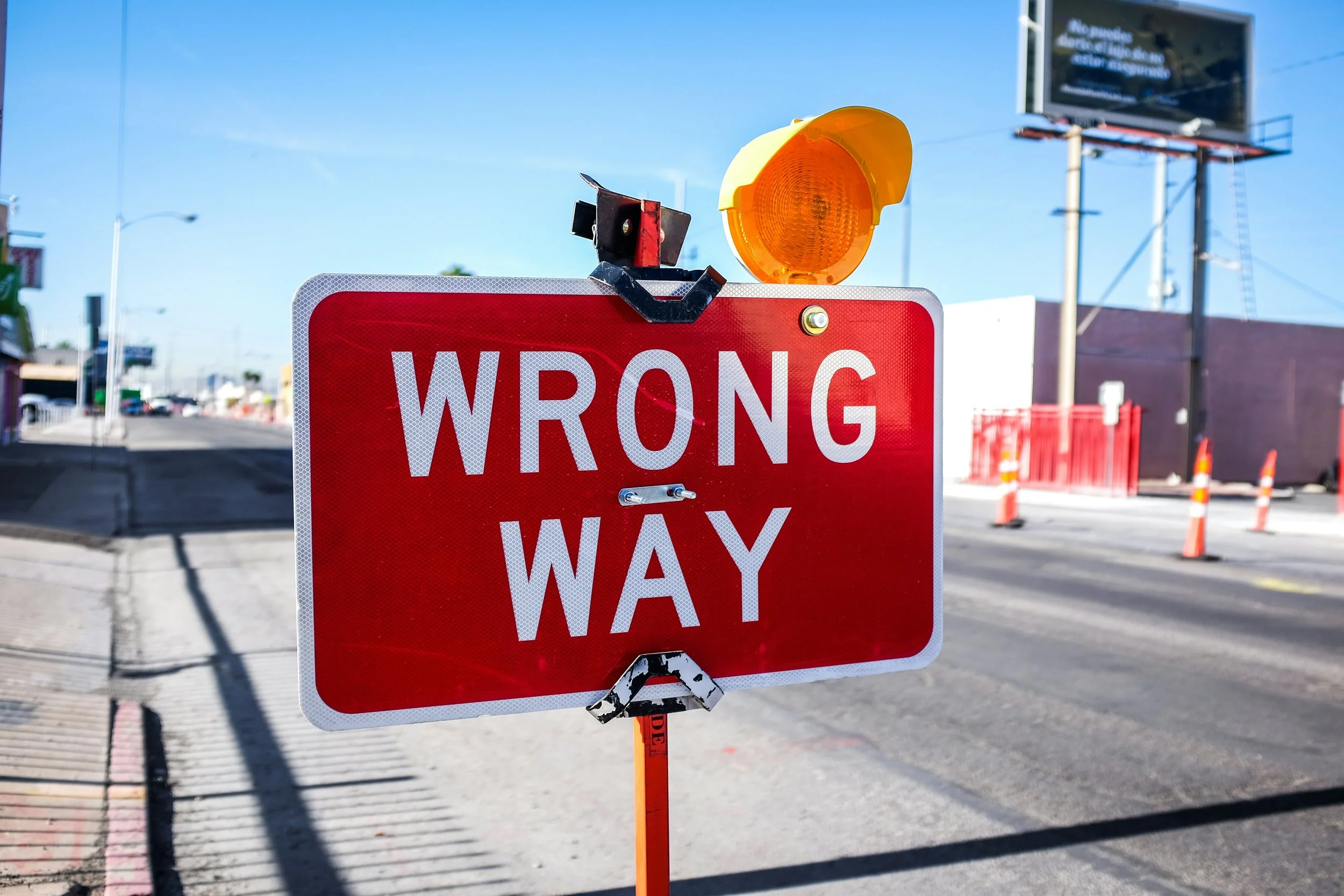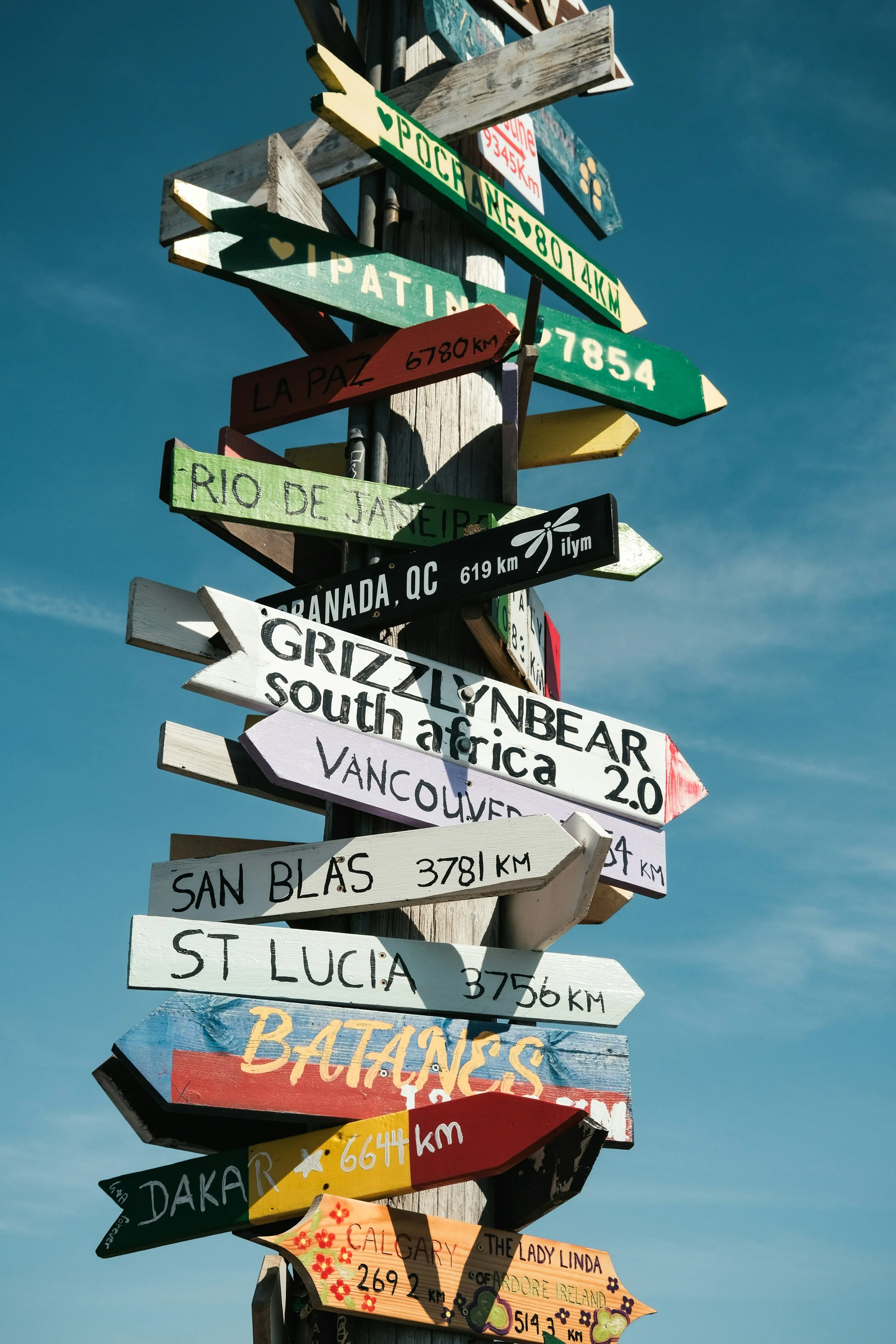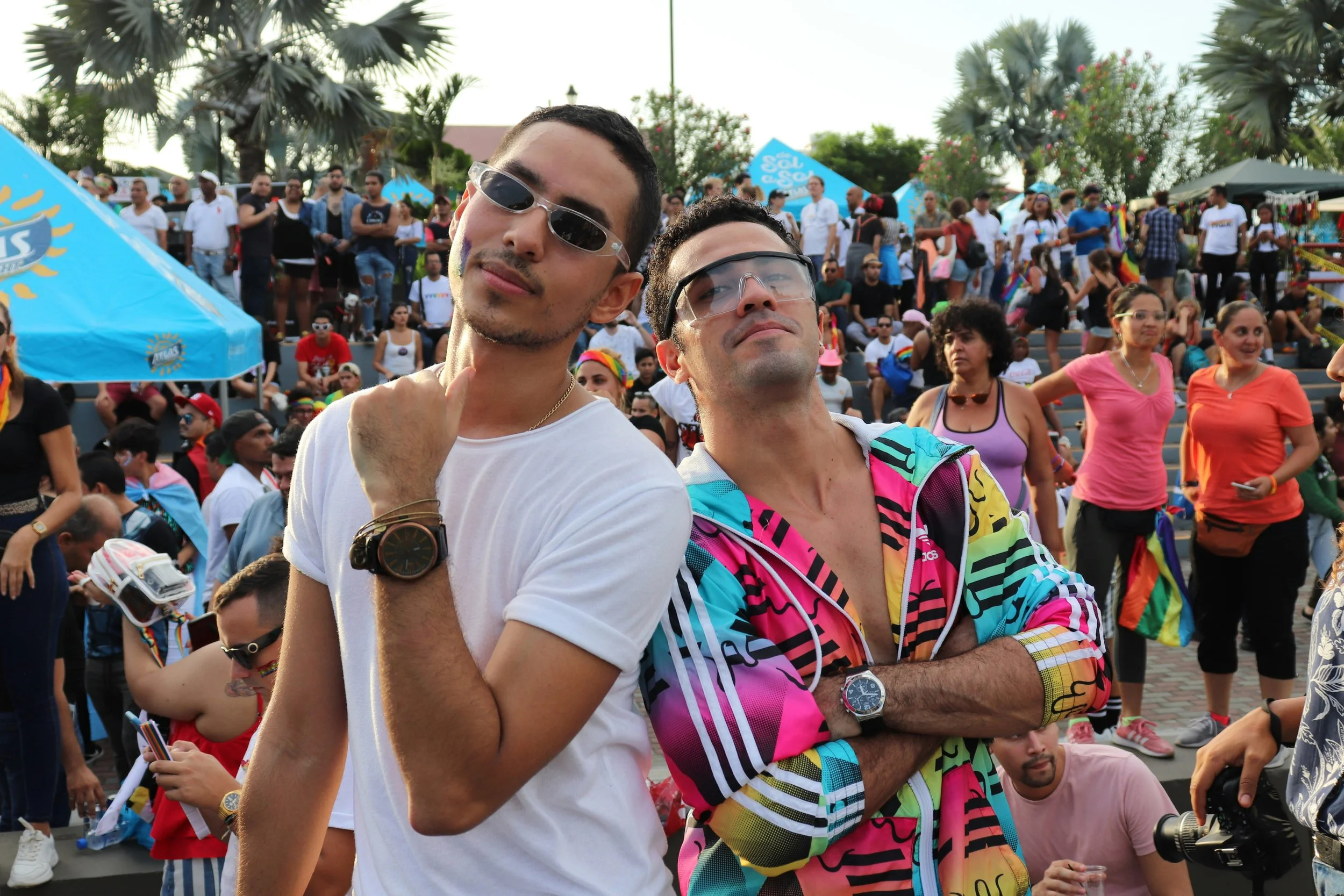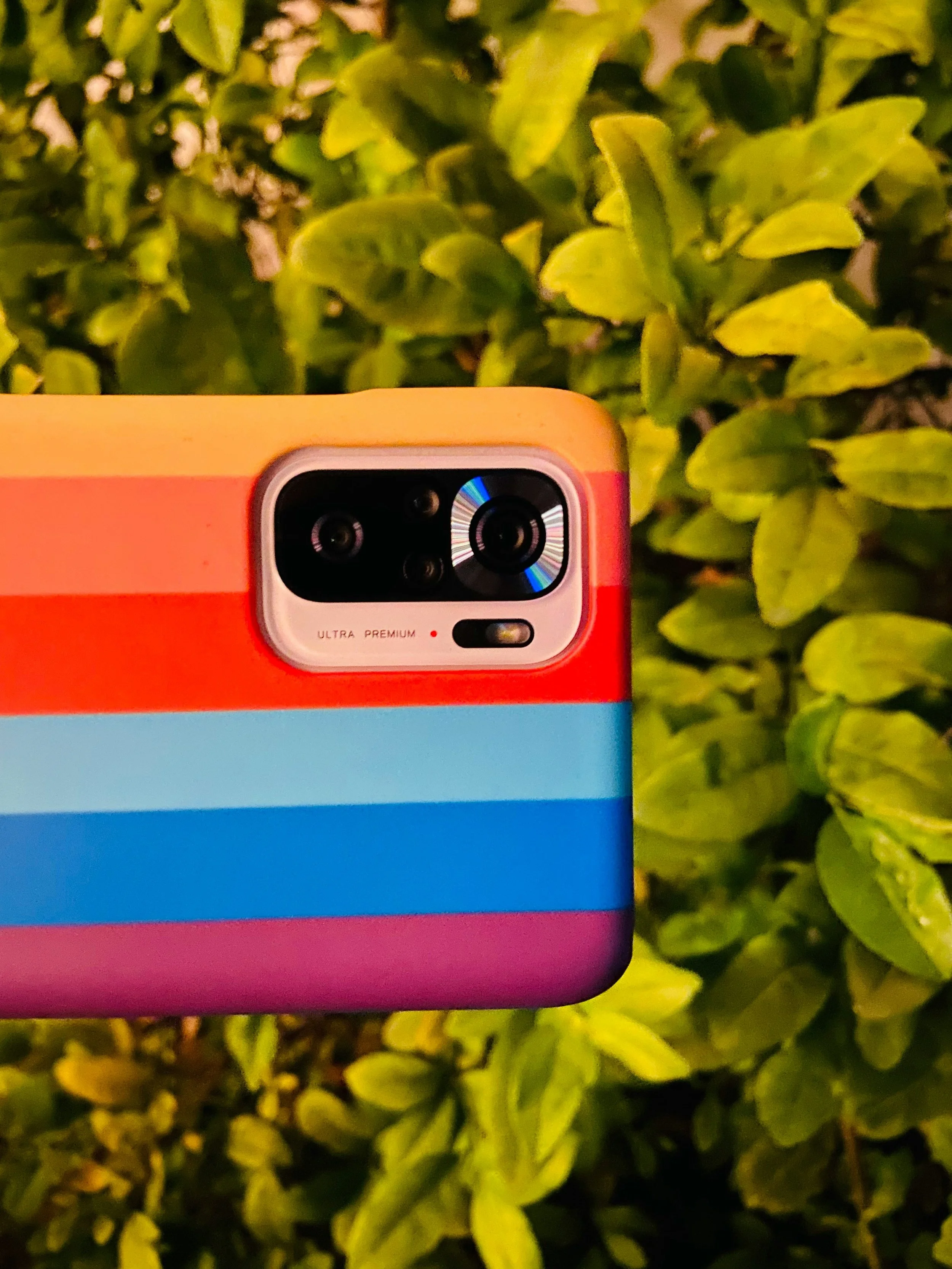
The Pause Before the Next Chapter: Why Get Out Needs a Breath
Get Out is entering a new chapter - one built on honesty, clarity, and intention. After a year of growth, I’m stepping back from weekly output to reconnect with the community, refine what works, rethink what doesn’t, and build a stronger foundation for what’s next. This pause isn’t a retreat; it’s a reset. A chance to dream bigger, start smaller, and invite others into the vision that Get Out was always meant to be.

The Friends You Outgrow (And the Ones Who Help You Grow)
A grounded, deeply personal reflection on how friendships evolve as we grow. This piece explores why some relationships fade, why healing can shift your social landscape, and how to rebuild a circle that fits who you are now - not the person you used to be. For queer adults, movers, rebuilders, and anyone feeling the quiet ache of outgrowing people, this story is a reminder that losing friends isn’t failure - it’s alignment.

Beyond the Vibe: How to Stay Connected (and Sane) Through Dating and the Holidays
The holidays amplify everything - the loneliness, the longing, the pressure to “find someone.” But connection built on real alignment, emotional security, and genuine care lasts far longer than any “good vibe.” This piece explores how to date with intention, stay grounded through holiday loneliness, and build connection that actually feels safe.

The Power of Subtraction: How Sobriety Gave Me Back My Energy, My Time, and My People
Socialising feels harder than ever, but not because we’re broken - because the world is heavy, expensive, and exhausting. This piece explores how queer sobriety, micro-connections, and the surprising wisdom of “subtracting” can create more energy, presence, and joy than we ever found in the nightlife era.

The Human Boomerang: Finding Your People When You’ve Lived 5 Lives Already
After years of bouncing between cities and states, I’ve realised that belonging isn’t a postcode - it’s a practice. This piece explores what it means to rebuild connection after every move, to re-root yourself when life keeps shifting, and to remember that friendships aren’t lost, just paused. Because home isn’t found. It’s built - and rebuilt - on your own terms.

Single On Purpose: Dating Without Burning Your Life Down
After turning 40, I’ve realised I’m not afraid of being alone - I’m afraid of letting the wrong man dismantle a life I’ve worked hard to build. This piece explores how self-protection can blur into self-isolation, why dating apps keep missing the point, and what it means to stay open to love without abandoning yourself in the process.

Convenience Is Stealing Our Community (And We’re Letting It)
Delivery apps, AI, and “frictionless” everything promised to give us time back - but what we traded away were the very skills and social rituals that make life feel full. This piece looks at how we’ve started choosing convenience over connection, why de-skilling is a queer issue as much as a cultural one, and what it would look like to rebuild a life that requires us again.

What a Year of Pitching and Starting Get Out Actually Taught Me
Twelve months of putting Get Out in front of rooms, investors, founders, and friends looked impressive from the outside - Enterprize pitch, community calendar, volunteer tool - but under the surface it was messier, slower, and more human than launch-day narratives ever admit. This is the story of how the idea evolved, where it stalled, what I learned about my own capacity (and limits), and why I’m bringing someone in to help grow what I still believe in.

Why I Run (and Why I Keep Going)
After losing eight friends in six years, I wasn’t suicidal — but I wasn’t really living either. Running gave me a reason to move again. It became meditation, therapy, and a quiet rebellion against despair. Every kilometre said, “You’re still here.”

The Art of Staying After the High
There’s a kind of silence that follows transformation — the hush after the confetti, the stillness after the summit, the hangover after the hope. When I first got sober, no one told me the hardest part wouldn’t be quitting. It would be staying.

Learning to Belong to Myself
Coming out was freedom - but what came after? We explore belonging, authenticity, and the quiet courage of becoming yourself.

What Regret Taught Me (So You Don’t Have to Learn the Hard Way)
Coming out was never the hard part - staying true once the noise began was. I spent years chasing belonging through busyness, mistaking visibility for value. When the mask cracked, I learned something quieter but more enduring: peace isn’t found in being everywhere, it’s built by being honest somewhere. Sobriety, structure, and small rituals didn’t make life smaller - they made it real.

The Companionship Effect: Why Doing Life With People Beats Hustle, Hacks, and Heroics
Most self-help advice is a solo sport: get up earlier, grind harder, optimise smarter. But a huge time-use study shows something simpler—and kinder: almost everything feels better when you don’t do it alone. From co-working to co-errands to low-key “parallel play,” shared rhythms lift mood, make habits stick, and protect mental health (especially for queer folks navigating loneliness or chemsex pressures). This piece swaps lone-wolf optimization for social fitness—tiny, repeatable touch points that make ordinary weeks easier, lighter, and more human.

The Myth of Earning Love Through Work
Many of us grow up believing love must be earned through achievement, effort, and endless work. But this belief often leaves us exhausted, lonely, and disconnected from what matters most. Drawing on psychology, personal finance wisdom, and end-of-life reflections, this piece explores the myth of “earning” love, why so many of us fall into the trap, and how to choose differently — reclaiming joy, connection, and presence in the process.

Love, Out Loud (Even When We Disagree)
What if happiness isn’t found in the dream house, the perfect partner, or the algorithm that promises you connection, but in something far less glamorous? A coffee shared with strangers. A difficult truth spoken with kindness. A ritual repeated often enough that it becomes belonging. We think joy is a climax — a wedding, a promotion, a viral moment. But the science (and the stories of ordinary people) keep showing us that happiness is much quieter, more human, and infinitely closer than we realise.

The Partner Plot Twist: What If Dating Isn’t the Main Story?
If every conversation ends with “So, seeing anyone?”—you’re not imagining it. We’re culturally obsessed with coupling, even as apps turbo-charge snap judgments and fuel loneliness. This piece makes the case for stepping off the treadmill: prioritising friendship, purpose, and community over performance dating. With fresh research on swipes, AI “companions,” and why stated preferences rarely match real choices, here’s how to choose connection that lasts—whether or not it leads to a relationship.

Where to from here?
When I started Get Out in Hobart, I was lonely, part-time, and determined to build a simple bridge between people and their local communities. We’ve built it — and it works. What comes next depends on you. Should we add people, add time, or add investment? Tell us how you connect, what you care about, and where we should focus so Get Out serves real needs, not assumptions. Help shape the next chapter.

How to Rebuild Friendship: Small Habits That Stick
I tried to optimise my way out of loneliness; it didn’t work. What has: being kinder to my brain and treating friendship like a practice. This field note blends neuroscience (micro-delights, cognitive appraisal), queer midlife reality, and six repeatable habits that make showing up easier — and connection stick.

The Real-Life Reset
The less time I spend online, the more my life feels like mine — better sleep, warmer friendships, finished projects. Research shows why: screens promise connection but often fuel loneliness. This piece swaps performance for presence, with five “micro-freedoms” to trade screen time for real time (device sabbath, outdoors by default, one ongoing group, embrace friction, host tiny). The algorithm can wait. Your people — including you — can’t.

Dry(ish) Is the New Deep: How Drinking Less (or Not at All) Gave Me My Life Back
I used to outsource confidence to a drink. Quitting didn’t turn me saintly — it made me steadier. With more people rethinking alcohol (and data backing the shift), this is the sober-ish playbook that rebuilt my energy, friendships, and self-respect: morning anchors, clean-fun rituals, social plans that don’t revolve around booze, and a kinder way to “start again.” No preaching — just practical steps for a life that feels like yours again.
